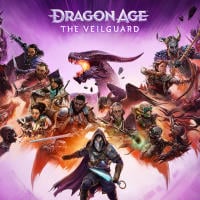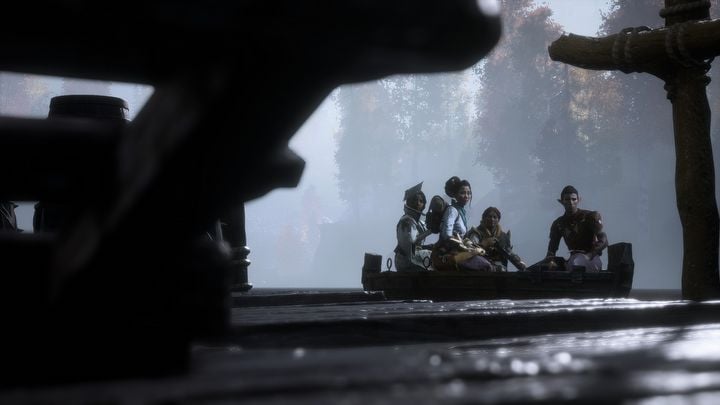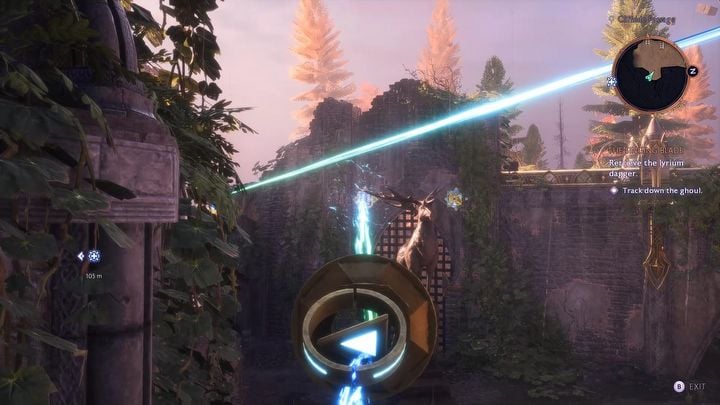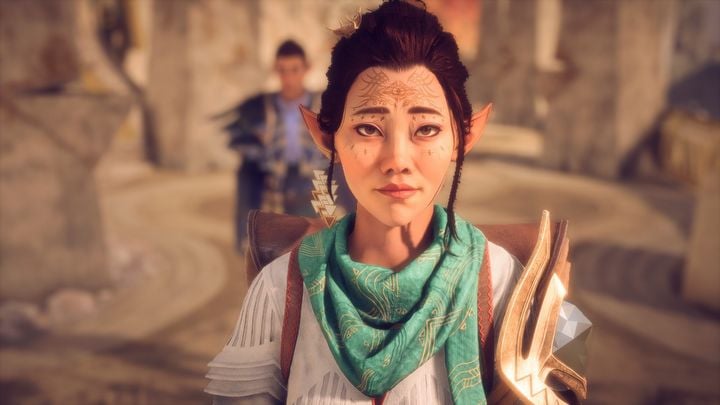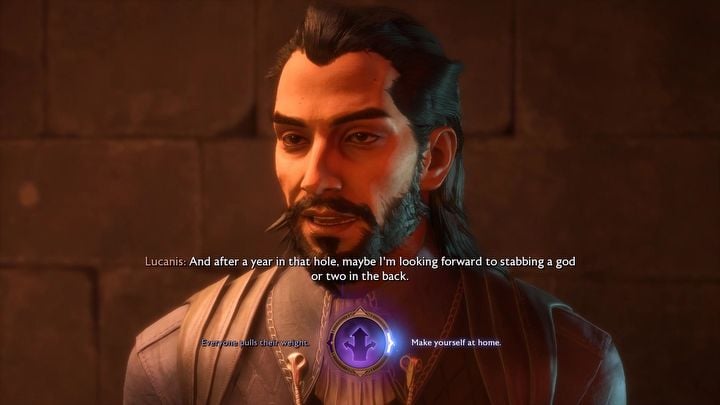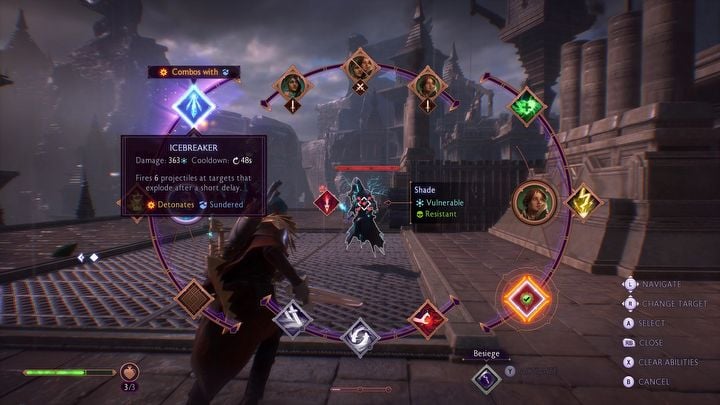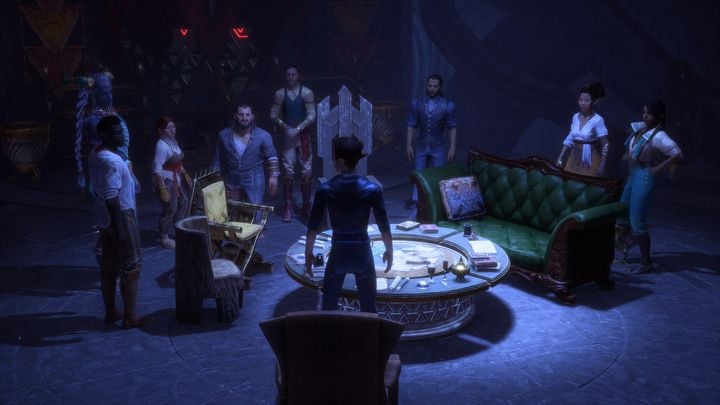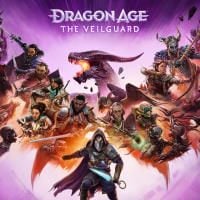Dragon Age: The Veilguard Review: A New Entry That Could Bring More to the Table
Dragon Age: The Veil Guard follows a path that moves away from the fans of the first installment of the series. It has added more simplifications, and the game world has been completely stripped of its former, dark character.
The review is based on the PC version. It's also relevant to PS5, XSX version(s).
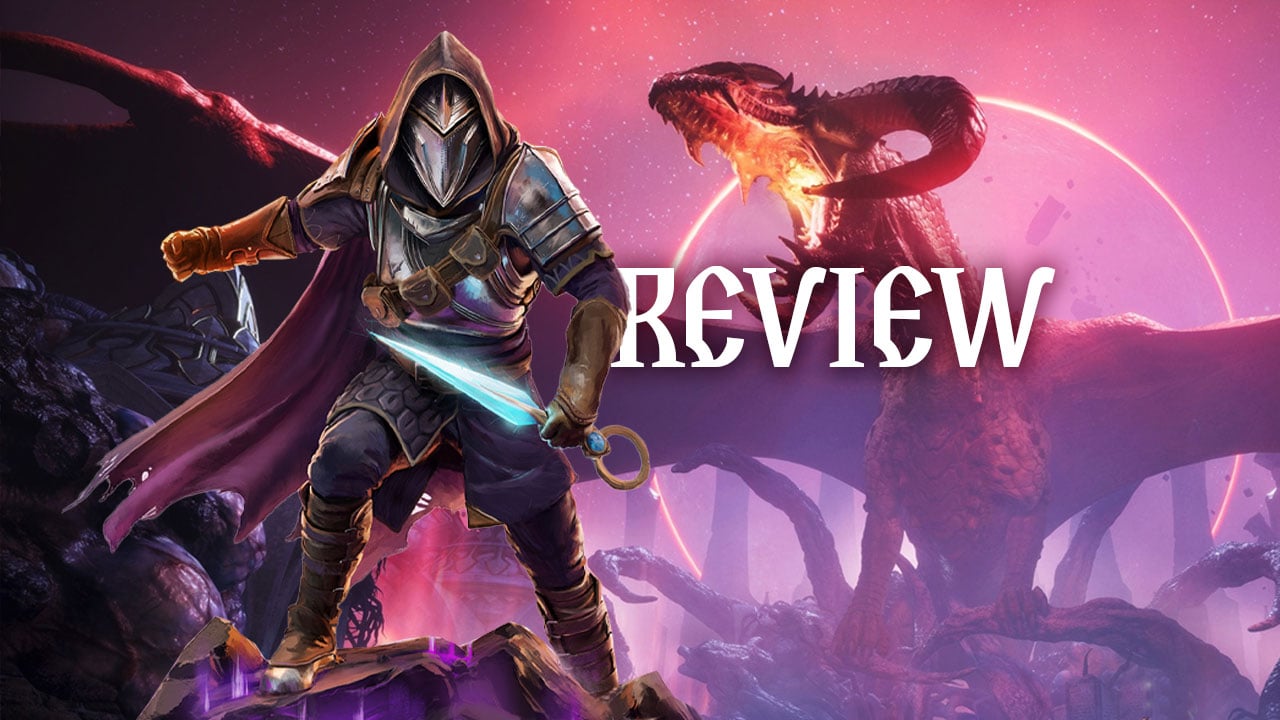
BioWare didn't abandon numbering their Dragon Age series games without reason. Continuing the story with one protagonist or maintaining the character of the world from the very beginning of the series does not interest the developer - too much time has passed since the first installment, now it's time to open the doors for new players. Or maybe just the next generation? However, I don't want to believe that the audience who don't remember the release of Origins or Dragon Age 2 are OK with simplifications in almost every aspect. Baldur's Gate 3, even with the number three in the title(!), has set a more interesting path, showing how to return to an old universes, the beginnings of which are not even remembered by me.
The Veilguard, on the other hand, is looking for overly easy paths. Breaks away from the series' DNA, losing its identity. The new look for the once called Baldur's Gate successor is ultimately poor, as simplifications have affected both gameplay and story. Perhaps because the aforementioned new generation of players was considered less open to complex experiences?
Gather a party, save the world - episode 1001
Dragon Age started as a game about saving the world from a great evil. There was nothing sophisticated in this concept, but it was not the general template that determined the strength of the game, but its implementation. We were dealing with a threat that actually caused fear. You could feel the despair, that being feisty or joking around would not help, only a miracle combined with maximum determination and dedication. However, it was not only the dark forces lurking on the horizon that kept us awake at night, because Thedas - the land the game takes place in - was full of wickedness and cruelty. For example, the prologue of a city elf required us to endure humiliation from human masters.
Forget about such an atmosphere here. The Veilguard throws all of this into the trash, softening every sharper and gloomier piece of the Dragon Age world, and is not interested in the consequences of choices made in previous installments. It leans towards a more black-and-white reality, where the evil is easy to spot. The story from the very beginning resembles a Marvel movie, in which there is no doubt that we are destined for heroic deeds, where the antagonist flexes his muscles, but in the end he will fail.
Instead of tension and engagement - the game offers relaxation and pathos. But even here the can takes a tumble, as the scale of events is slightly lacking. We are trying to gain support from various factions, but I got the impression from the game that they are small groups. They lack expressiveness and reputation built by the plot, and the construction of the locations (which I will return to) does not help, too. Moreover, a certain plot twist turns out to be a miss, as it looms on the horizon for too long not to arouse our suspicions.
None of this should be surprising, because subtlety is unfortunately not the strong suit of The Veilguard. It is significant how literally chapter by chapter, we hear from various characters that the success of the mission requires a cool head and focus - therefore, we should definitely deal with the problems of our companions and allies. It was enough to say it once, but no - the game has to keep hammering it into our heads, as if saying it once, twice or even thrice wasn't enough. However, it would be best if this message did not exist at all, because it cannot be naturally placed in dialogues.
- well-executed pathos;
- nice, fairy-tale looking locations;
- sometimes good fun with various conventions, especially in the companions' threads;
- for a while, pleasant exploration;
- down-to-earth conversations in the party;
- technical aspect is very good.
- simplified, devoid of character world;
- non-engaging plot;
- monotonous gameplay in the long run;
- too little freedom in role-playing the character;
- lack of major plot choices;
- combat devoid of tactics and not motivating to experiment;
- side quests that are just a pretext for a fight;
- choices from previous installments almost ignored.
The concept itself has already be done in Mass Effect 2. There, success also required dealing with the personal matters of each of the companions, but no one had to tell us such obvious things. This is not the only element in which The Veilguard tries to emulate the best installment of the trilogy about Commander Shepard. ME2 took care of the player's emotional involvement, drama, and darkness. The only response Veilguard has for these three aces is one jack in the form of pathos.
Dynamic, but too long
BioWare has given up on a large open world, so locations often have a more linear character - in single missions - which is a strange experience at first. After all, we are talking about a team-based RPG, once hailed as the spiritual successor to Baldur's Gate, not - despite the action elements - a game in the style of God of War. Later on, habit takes over, and in addition, we return to some locations to complete more tasks and access previously blocked areas, which translates into a slightly more branched out, sometimes vertical structure.
Here, The Veilguard seems to draw from the metroidvania genre. Sometimes you have to think about how to move forward, but these are easy puzzles. Sometimes you need to use a character's special ability, notice a certain element, or acquire an item that allows you to reach new areas. This mechanic works well - it doesn't require too much attention (that is we don't have to thoroughly search through every corner), and it quickly shows visible progress.
Nonetheless, this is not a dream come true for an RPG fan. Anyone who prefers a different kind of exploration, which involves learning about the world through interactions with NPCs, finding new quests, and immersion, may feel disappointed. We get locations designed for gameplay - combat, environmental puzzles - and not for the plot, and certainly not for building the scale of events (backtracking and corridor-like design doesn't help here). This approach can be seen in many aspects, as if the developers came up with the mechanics first, and then tried to somehow adjust the content to them.
It may seem that the gameplay loses its dynamics, but no, quite the opposite. BioWare actually managed to make the story quests progress at a fast pace and no one distracts our attention from the crux of the matter. Another simplification, this time something I find as a positive, because it's nice to focus on a specific goal, is if someone told BioWare that the prepared ideas would work better for 30-40, not necessarily 60 hours of gameplay. After a while, The Veilguard starts to get boring due to lack of challenge or variety.
Dimmed light in the tunnel
The companions' storylines stand out positively, with a lot of charming, funny spookiness probably inspired by The Addams Family, and the intrigues of assassins speaking like in a Latin soap opera. I was really missing paraphrasing Inigo Montoya there. More fun like this, please!
The conversations between companions are another example of good content. The developers assumed (rightly) that nothing builds relationships like talking about mundane things and referring to what players know and like. So among the companions, we have a true coffee lover, who instructs how to brew. There are conversations about cooking - because after all, food in our base has to come from somewhere - and we even manage to go shopping or delve into deeper, existential topics. All of this, however, would be much better if it weren't for basic mistakes.
Conversations between companions during exploration sometimes bring to mind the worst dates, as a sudden string of banal questions about one character's profession arises. There is also too little fire and conflict – everyone likes each other and is extremely nice and polite. In every group, there are frictions, especially at the beginning, and this was definitely lacking here, to the point where I missed BG3, where companions could literally jump at each other's throats.
The organization of some companion quests can be frustrating at times, as they may simply involve a single, brief conversation where we act as passive observers. When you have to click through the interface to reach another location (where we need to have a conversation), it's difficult not to feel like someone is playing with us and wasting our time.
Where is freedom in that?
Simplifications also affected the choices. For a long time, we are left with just one decision and although more options appear later in the game (we can guide companions towards different approaches to their problems), we are essentially left with a very linear plot that leaves little room for maneuver. Actually, our freedom depends mostly on whether we complete side quests (increasing the chances of success and character survival) or ignore them.
We see a reflection of this problem in the dialogues because, usually, if we have a chance to choose an option, it leads to the same outcome. There is a polite, humorous, and offensive choice - but I don't know on what basis the devs defined them, because sometimes the last two variants also sound polite, devoid of humor or edge. It's hard to empathize with a character that we have so little influence over in conversations. I am less interested in the extensive character creator here than in role-playing the chosen character during the game.
Side quests not directly related to companions also hurt. We won't find any gems in these quests, often we only get a pretext to slash opponents like in some kind of hack&slash. Moving stories are unfolding in the background, such as someone succumbing to the influence of demons under the weight of their own suffering and causing pain to others - but instead of depicting such a storyline, we receive it in documents or letters to read. The quest isn't about the difficult judgment of an ambiguous villain and the emotional stirring of a life tragedy, but about exterminating demonic beings, which are the result of the whole mess.
Fighting on auto-pilot
The gameplay wouldn't become so monotonous if it weren't for the combat, which is abundant and presents no challenge. On the normal difficulty level, you can easily defeat a boss several or even a dozen levels higher - because "difficulty" is interpreted here as the enemy's resistance to attacks. You must dedicate more time to it, that's all. It won't catch you off guard with any new moves or the need for a tactical approach. We attack, we dodge, we block, we use special, time-limited abilities that take as much health bar as possible - that's enough.
Class system seems to not exist - we can play as a mage and have only mages in the team, there is no problem. In a standard RPG, we would be punished for this idea, because spell-casting characters usually have a dramatically weak defense and mainly fight at a distance. Here, companions are immortal anyway, and enemies mainly focus on us, so regardless of the party composition, you should just avoid blows and maximize damage.
On the other hand, opponents are almost always the same, and to complicate things for us, their number is increasing. At some point, I had enough – whether it was a side quest or the main one, it was just fighting on auto-pilot. How much can you do that? Of course, in this situation, character development and equipment upgrades take a backseat - we pay some attention to it, but there is no need to analyze how to build our character. If we make an inappropriate build, the clashes can last longer, but no major harm should happen to us.
It's a shame, because the skill set looks impressive. There is really a lot to develop and we can go into various specialties, we just don't have the right motivation for it. In terms of equipment, the mechanics have been controversial from the beginning. For instance, we increase the quality and distinctiveness of our weapons by obtaining additional copies, which naturally depends on what we come across in the chests during exploration. The approach is oddly designed, especially because it undermines the purpose of purchasing new weapons from dealers. Why should we do this, when during an adventure we can immediately find something better or improve what we already have?
This isn’t the end of Dragon Age that I was expecting - in this respect, the game must be rated very low. However, as an action RPG with flair and a beautiful fairy-tale world, it turns out to be decent, and sometimes even more than that.
Find all our reviews on Metacritic and Opencritic.
Despite everything - it's not bad
I love music and I enjoy returning to my favorite tracks from The Witcher 3 or ballads composed for Dragon Age: Inquisition. Unfortunately, The Veilguard offers little more than decency here – some sounds play in the background, but nothing memorable that I would want to listen to later.
However, the game certainly defends itself with technicalities. This is particularly noteworthy in the common practice of releasing unfinished games. I haven't experienced any errors or problems with the smoothness of the gameplay. The optimization is very good, so we can enjoy this beautiful world without any issues. The world is different from that of Origins or Dragon Age 2, but in its fairy-tale nature, and that can be enchanting.
It reminds me of the German RPG game Drakensang here. This title isn't very well known, but it stole my heart. In The Veilguard, just like in Drakensang, the world looks fairy-tale and magical. I can overlook how gloomy Origins was, as the breathtaking views amaze with their charm - from the necromantic corridors representing a visually appealing darkness, welcoming and inviting to explore, to the city of assassins, adorned with Venetian craftsmanship. Many scenes are begging to be immortalized, and the scale built by the direction is at the highest level.
This is not the end of Dragon Age that I was expecting - in this respect, the game must be rated very low. However, as an action RPG with flair and a beautiful fairy-tale world, it turns out to be decent, and sometimes even more than that. It offers several dozen hours of gameplay, which, despite becoming monotonous over time, still has its strong aspects. I won't reminisce about this adventure with sentimentality, but as I write these words over a cup of hot coffee, beloved by one of the protagonist's companions, I can't strongly criticize it either. I liked it - but I could have liked it more.
Dragon Age: The Veilguard
Dragon Age: The Veilguard Review: A New Entry That Could Bring More to the Table
Dragon Age: The Veil Guard follows a path that moves away from the fans of the first installment of the series. It has added more simplifications, and the game world has been completely stripped of its former, dark character.
